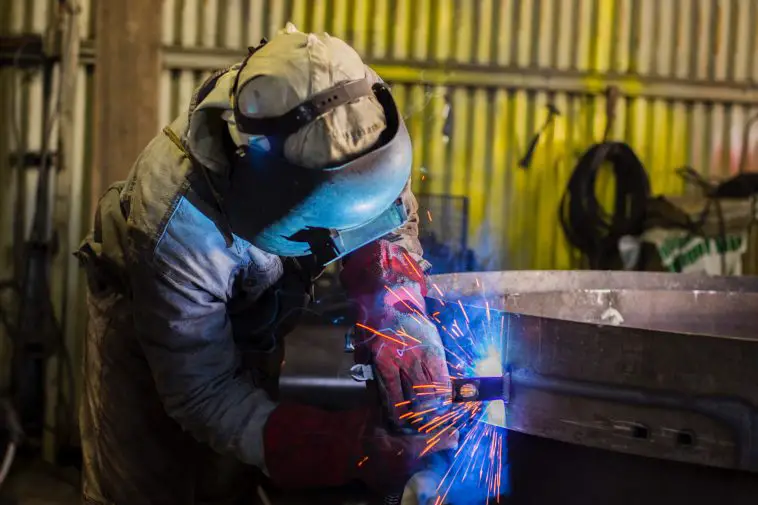Welding is a skilled trade that is in high demand in many industries, from manufacturing to construction. As a welder, you can have a rewarding career that offers both financial stability and job satisfaction. However, becoming a welder requires more than just an interest in the craft; it also requires proper training and certification. A welding certification is a validation of your knowledge and skills in the welding field, and can make you more marketable to potential employers. In this article, we will explore how to become a certified welder, including the certification process, different certification programs available, certification requirements, exam preparation, and the costs associated with obtaining a welding certification. Whether you are just starting out in your welding career or looking to advance your skills, this guide will provide you with the information you need to succeed in the welding industry.
Understanding the Welding Certification Process
Welding certification is a process that validates the knowledge and skills of a welder. It is an important step towards building a successful career in welding, as it demonstrates to employers that you have the necessary skills to perform welding tasks safely and efficiently.
Definition of Welding Certification and Why it is Important
Welding certification is a formal recognition that a welder possesses the necessary skills to perform welding tasks according to industry standards. The certification process is usually administered by a third-party organization, such as the American Welding Society (AWS), and involves a series of tests to assess a welder’s skills in a specific welding technique. Welding certification is important because it demonstrates to employers that you have the skills and knowledge required to perform welding tasks safely and efficiently. It can also open up new job opportunities and increase your earning potential.
Overview of the Different Types of Welding Certifications
There are several types of welding certifications, each with its own set of requirements and tests. Some of the most common welding certifications include:
- Certified Welder (CW): This certification is the most basic level of certification and demonstrates that a welder can perform basic welding tasks according to industry standards.
- Certified Welding Inspector (CWI): This certification is for those who wish to become certified welding inspectors. It requires a more extensive knowledge of welding codes and standards, and the ability to inspect and certify welds according to these standards.
- Certified Welding Educator (CWE): This certification is for those who wish to become welding instructors. It requires a deep understanding of welding theory and the ability to teach welding techniques to others.
Explanation of the Welding Certification Process, Including Eligibility Requirements and Application Procedures
The welding certification process involves a series of tests designed to assess a welder’s skills in a specific welding technique. The tests typically involve welding a test piece in a controlled environment, and the weld is then inspected for defects. Eligibility requirements for the welding certification process vary depending on the type of certification you are seeking. Generally, you will need to have a certain amount of welding experience and education, and be able to pass a vision test.
To apply for a welding certification, you will need to submit an application to the certifying organization, along with any required documentation, such as proof of welding experience or education. Once your application is accepted, you will be scheduled to take the certification test. After passing the test, you will receive your certification, which is usually valid for a certain period of time before needing to be renewed.
Welding Certification Programs
There are several organizations that offer welding certification programs. These programs are designed to provide welders with the necessary training and knowledge to pass the certification tests. The most well-known organization that offers welding certification programs is the American Welding Society (AWS).
AWS Certification Programs
The AWS offers a wide range of certification programs for different welding processes and positions. These include:
- Certified Welder (CW): This certification is for those who have a basic knowledge of welding and want to demonstrate their skills in the welding industry. It is the most common certification and requires passing a written test and a practical welding test.
- Certified Welding Inspector (CWI): This certification is for those who want to become welding inspectors. It requires passing a written test, a practical welding test, and a visual inspection test.
- Certified Welding Supervisor (CWS): This certification is for those who want to become welding supervisors. It requires passing a written test and a practical welding test.
- Certified Welding Educator (CWE): This certification is for those who want to become welding instructors. It requires passing a written test and a practical welding test, as well as demonstrating teaching ability.
The AWS also offers specialized certifications for welding processes such as underwater welding and robotic welding.
Other Certification Programs
Other organizations that offer welding certification programs include the American Society of Mechanical Engineers (ASME) and the National Center for Construction Education and Research (NCCER). These organizations offer certification programs for specific welding processes and positions, such as pipe welding and structural welding.
Benefits of Welding Certification Programs
Participating in a welding certification program can provide several benefits for welders, including:
- Demonstrating to employers that you have the necessary skills and knowledge to perform welding tasks according to industry standards.
- Increasing your earning potential by making you more marketable to potential employers.
- Providing access to specialized welding certifications for niche areas such as underwater welding and robotic welding.
- Improving your welding skills and knowledge through training and education.
By participating in a welding certification program, you can gain the necessary skills and knowledge to become a certified welder and advance your welding career.
Welding Certification Cost
The cost of obtaining a welding certification can vary depending on the organization and the type of certification you are seeking. In general, certification costs can range from a few hundred to a few thousand dollars.
The AWS, for example, charges a fee for each certification exam, with prices ranging from $35 for the Certified Welder (CW) exam to $1,085 for the Certified Welding Inspector (CWI) exam. In addition to the exam fees, there may be costs associated with study materials, such as textbooks and practice tests.
Other organizations that offer welding certification programs may have similar or different pricing structures. It’s important to research the costs associated with certification programs before enrolling to ensure that you can afford them.
In some cases, employers may cover the cost of certification for their employees as part of their training and development programs. This can be a valuable benefit for welders who want to advance their careers and improve their skills.
While the cost of obtaining a welding certification can be significant, it is important to consider the long-term benefits of certification, such as increased earning potential and improved job prospects. Many welders find that the cost of certification is a worthwhile investment in their careers.
Overview of Welding Certification Levels
Welding certification programs are available at different levels, ranging from entry-level certifications to more advanced certifications for experienced welders. The most common welding certification levels include:
- Entry-Level Certification: Entry-level certifications, such as the Certified Welder (CW) certification offered by the American Welding Society (AWS), are designed for those who are new to welding or have limited experience. These certifications typically require passing a written exam and a practical welding test.
- Advanced Certification: Advanced certifications, such as the Certified Welding Inspector (CWI) certification offered by the AWS, are designed for experienced welders who want to demonstrate their expertise and advance their careers. These certifications typically require passing a written exam, a practical welding test, and a visual inspection test.
- Specialized Certification: Specialized certifications, such as the Underwater Welding certification offered by the AWS, are designed for welders who want to specialize in a specific area of welding. These certifications typically require additional training and certification in areas such as underwater welding or robotic welding.
Differences Between Welding Certification Levels
The different levels of welding certification represent different levels of skill and expertise. Entry-level certifications demonstrate a basic understanding of welding techniques, while advanced certifications demonstrate a higher level of skill and expertise in areas such as welding inspection and supervision.
Specialized certifications demonstrate expertise in a particular area of welding and may require additional training and certification beyond the basic requirements for entry-level and advanced certifications.
Career Opportunities Associated with Welding Certification Levels
The career opportunities available to certified welders can vary depending on the level of certification they hold. Entry-level certifications may qualify welders for positions such as production welder or welder’s assistant, while advanced certifications may qualify welders for positions such as welding inspector or welding supervisor.
Specialized certifications may qualify welders for niche positions such as underwater welder or robotic welder. Welders with advanced or specialized certifications may also be eligible for higher pay and greater career advancement opportunities.
Conclusion
In conclusion, becoming a certified welder can open up many opportunities for a successful and rewarding career in the welding industry. By understanding the welding certification process and the different types of certifications available, you can take the necessary steps to obtain the certification that is right for you and your career goals. Whether you are just starting out or are an experienced welder looking to advance your career, obtaining a welding certification can demonstrate your expertise, increase your earning potential, and open up new career opportunities. With the information provided in this article, you can make an informed decision about pursuing a welding certification and take the first step towards a successful career in welding.




